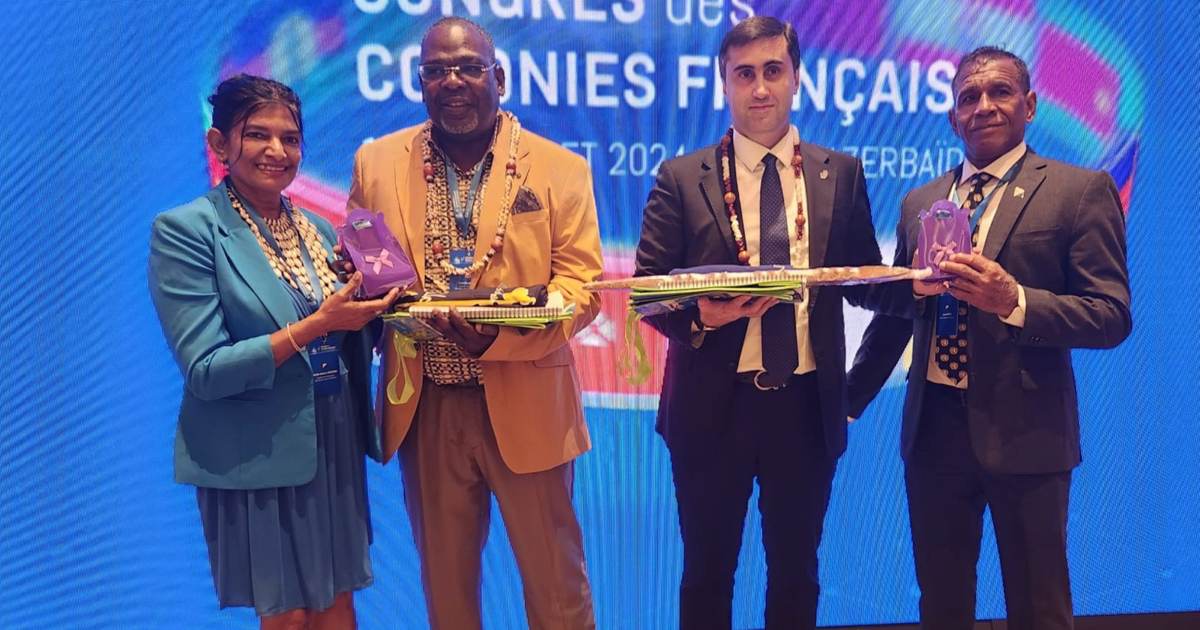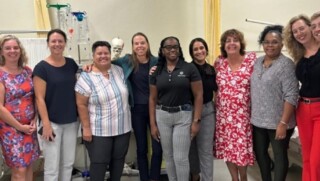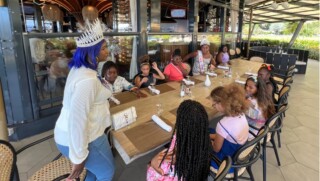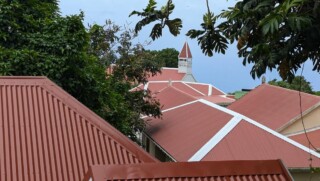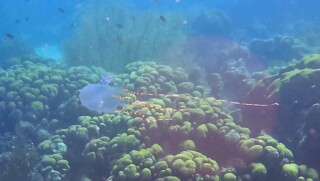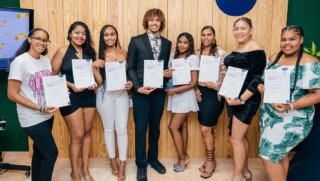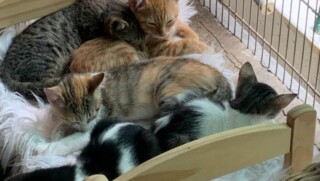Nobo Develops Plastic Recycled Tag for Reef Renewal Foundation Bonaire
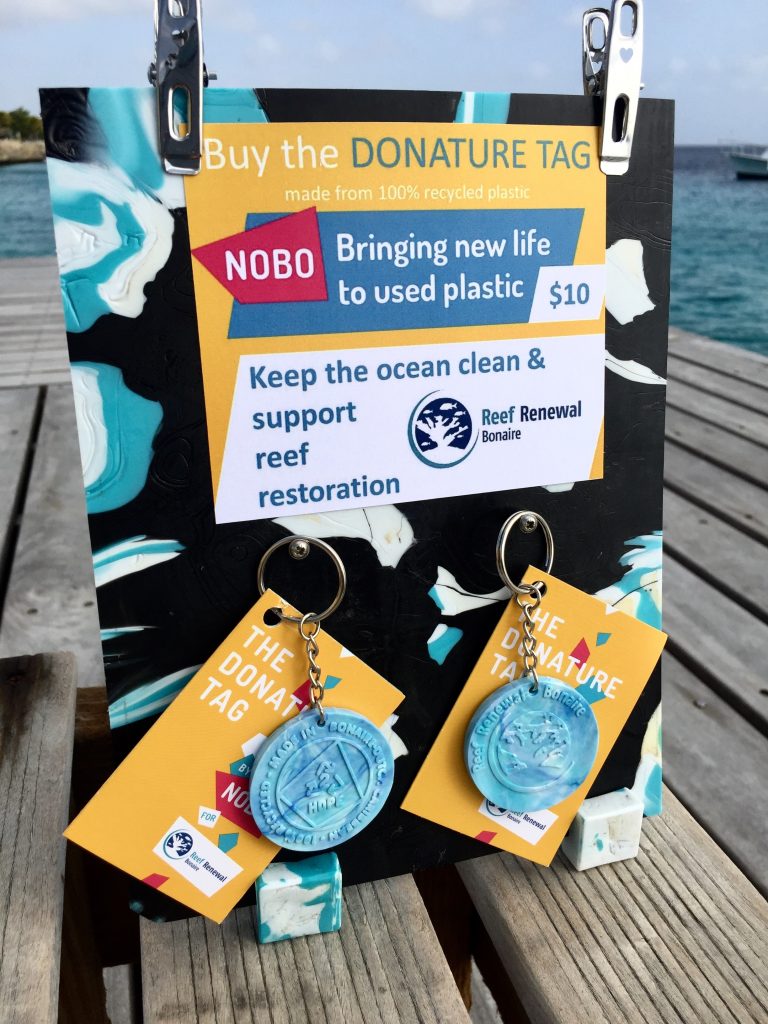
Kralendijk – Plastic Recycling initiative NOBO is always looking for innovative ways to collaborate with NGOs on Bonaire. That is why NOBO developed “The Donature Tag” as a means of Sustainable Finance for NGO’s.
Goal of The Donature Tag
The idea for the tag was presented to various nature NGOs on the island, and Reef Renewal Foundation Bonaire (RRFB) was immediately enthusiastic about the plastic recycled tag, as a way to support their work. RRFB offers a diving training course, where divers can learn about the reef restoration methods that are used on Bonaire. The Donature Tag, which can be attached to a BCD or used as a key chain, is imprinted with RRFB’s logo and will initially be sold at RRFB affiliated dive shops. All tag proceeds will directly support RRFB’s reef restoration work in Bonaire. “Collaborations between nature organizations on this island are critical to make the difference”, says Francesca Virdis, RRFB Coordinator, “and we hope that people will show their love for Bonaire and support to local nature protection and restoration initiatives by purchasing the unique Donature Tag”.
Negative impact of plastic on corals
It is a well-known fact that plastics have a negative impact on marine life, and there are global efforts to rid the oceans of the toxic plastic soup. Although there is less known about the direct impact of plastic on corals. A recent study published in the journal Science (Lamb et. Al. 2018), which explores what threat plastic pollution poses to coral reefs, found that:
1. Plastic can block light and oxygen from corals, which are essential to the survival of reefs, and 2. Plastic increases the chance of coral disease. It is important to recognize this connection between plastic and corals and the need to prevent plastic leakage on Bonaire. This can be achieved when residents of Bonaire are willing to separate plastics from their household waste, and hand it in at Plasa Medio Ambiente. The other important step for Bonaire is to implement a ban on single use plastics, because this will lead to a significant reduction of plastics going to the landfill.
Waste separation & Recycling on Bonaire
NOBO Is currently sourcing its type 2 (HDPE) plastic from Fundashon Mariadal and Selibon’s recycling center: Plasa Medio Ambiente. But the idea would be to actively involve divers in separating their plastic waste. Divers could hand in type 2 plastic, for example shampoo bottles, at the dive schools where the Reef Renewal tag is sold. That way, plastic collected from divers will be recycled into new Donature Tags. NOBO hopes that more NGOs will be interested in developing their own Donature Tag. The tag offers the unique opportunity to support local nature conservation efforts, while at the same time creating awareness for environmental challenges with regard to processing plastic on Bonaire.
NOBO’s ultimate goal is to develop large plastic recycled products that use lots of plastic. In the end, this tag is only made from 5 grams of recycled type 2 plastic, and of course this is not enough to combat the huge amount of plastic on Bonaire. But at least NOBO is making a start by bringing new life to used plastic.
About Reef Renewal Foundation Bonaire
Reef Renewal Foundation Bonaire protects and restores coral reefs in Bonaire by:
- developing new and innovative ways to restore reefs that are supported by research collaborations and shared worldwide
- training, engaging, and inspiring the community locally and internationally through volunteering, educational events, and outreach
- demonstrating that through community efforts there is still hope for coral reefs
Through large-scale propagation, outplanting, and monitoring of genetically diverse corals, Reef Renewal Bonaire works to assist natural recovery of coral reefs. To learn more about how to get involved or lend support, visit reefrenewalbonaire.org or email info@reefrenewalbonaire.org.
About NOBO Bonaire
NOBO started in 2016 as the “Trash to Cash” project funded by the World Wide Fund for Nature in the Netherlands. This project was implemented in collaboration with Plastic Soup Foundation and Selibon. The initial idea was to have Selibon workers produce plastic recycled products. But the project lacked well thought out products and quality moulds. Plastic recycling is really not as simple as it looks. In 2018 the idea for producing plastic recycled products was revived, thanks to a group of volunteers. NOBO is currently in the process of becoming a social enterprise, hopefully employing local inhabitants in the near future. The concept for the Donature Tag was developed in collaboration with Deviate Design.
Also read
- Traveling abroad?
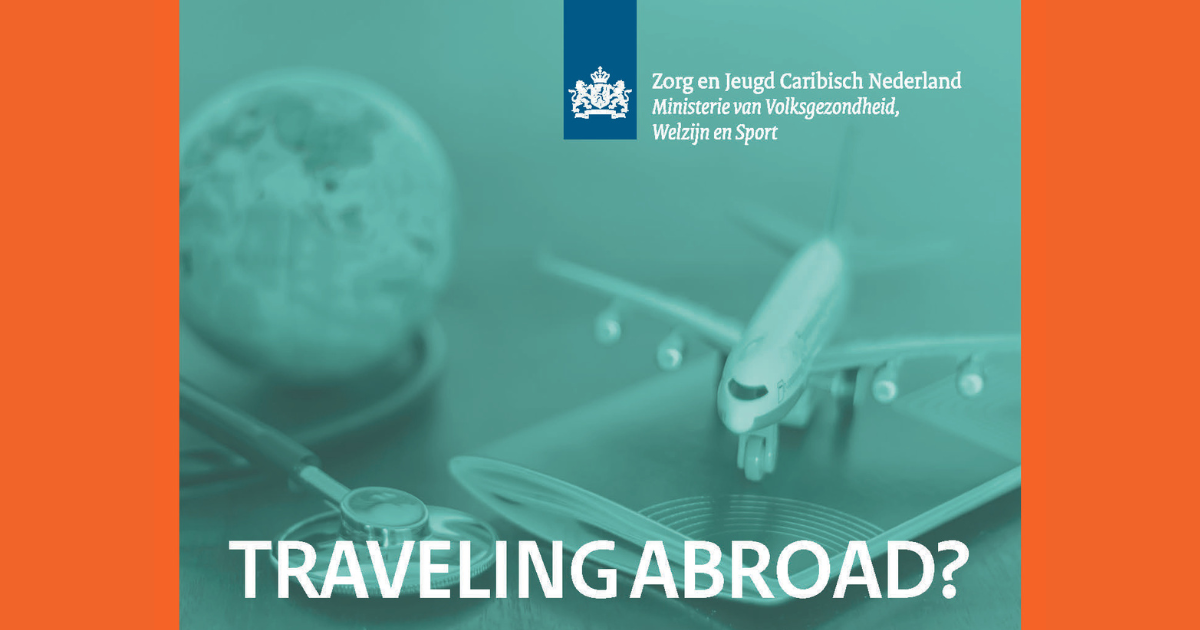
- Curaçao Seeks ‘Level Playing Field’ for Local Airlines

- First Edition of Bonaire by Night on Friday, August 2

- Edsel Winklaar appointed interim director at Selibon N.V.

- Bonaire Human Rights Organization advocates for Bonaire in Azerbaijan
